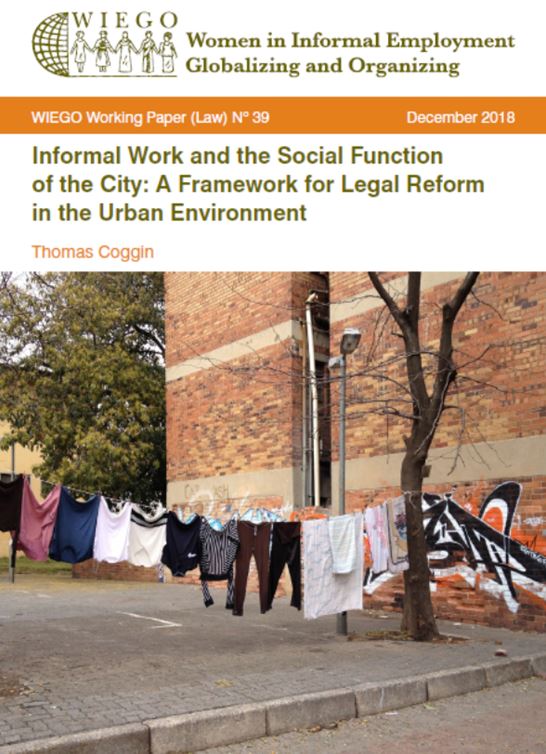EU – Gender Equality & Climate Change: Towards mainstreaming the gender perspective in the European Green Deal
Извор: WUNRN – 28.07.2021
https://cor.europa.eu/EN/our-work/Pages/OpinionTimeline.aspx?opId=CDR-2509-2021
WUNRN invites you to visit and engage with WUNRN Europe Twitter at: https://twitter.com/wunrn_eu
WORKING DOCUMENT
Commission for Environment, Climate Change and Energy
Gender Equality and Climate Change: Towards mainstreaming the gender perspective in the European Green Deal
Rapporteur: Kata Tüttő (HU/PES)
Member of the General Local Assembly of Budapest, Hungary
Working document of the Commission for Environment, Climate change and Energy –
Gender equality and Climate change: towards mainstreaming the gender perspective in the European Green Deal
Gender equality and Climate change: towards mainstreaming the gender perspective in the European Green Deal
1. Climate change affects all countries across Europe and all around the globe, but its impacts are not equally distributed among regions, generations, age classes, income groups, occupations and genders. Climate change has a greater impact on those sections of the population that are most vulnerable, whether in more developed or less developed areas, and exacerbates existing inequalities. Women and girls are disproportionately affected by climate change, environmental degradation, and biodiversity loss, lowering their ability to adapt.
2. Equality between women and men is one of the European Union’s founding values. It goes back to 1957 when the principle of equal pay for work of equal value became part of the Treaty of Rome. Currently, Article 8 of the Treaty on the Functioning of the European Union states, “In all its activities, the Union shall aim to eliminate inequalities, and to promote equality, between men and women”. However, the EU is today at least 60 years away from reaching complete gender equality[1].
3. Over the past few decades, the EU has notably improved equal treatment legislation, gender mainstreaming (integration of a gender perspective into all policies) and specific measures for the advancement of women. The issue of gender equality made it back on to the political agenda with strong support from the first-ever female Commission President, Ursula von der Leyen, and the creation of a dedicated Commissioner for Equality, Helena Dalli. The EU is a global leader in gender equality, with 14 EU Member States in the top 20 countries worldwide.
4. On 5 March 2020, the European Commission published “A Union of Equality: Gender Equality Strategy 2020-2025”, as one of a series of EU initiatives and strategies concerning equality, diversity and inclusion that the Commission will adopt and enact as part of delivering on its headline ambitions “A stronger Europe in the world” and “A new push for European democracy”. The proposed Gender Equality Strategy aims at “achieving a gender-equal Europe where gender-based violence, sex discrimination and structural inequality between women and men are a thing of the past”.
5. The Strategy pursues a dual approach of gender mainstreaming combined with targeted actions, and intersectionality is a horizontal principle for its implementation. Therefore, one of the goals of the Gender Equality Strategy is to promote gender mainstreaming and to take an intersectional perspective in EU policies. These headline ambitions where gender equality is embodied, are complemented with the overarching Commission priority named a “European Green Deal”. The European Green Deal represents the new growth strategy for Europe as a response to the climate emergency, and our plan to make the EU’s economy sustainable. It aims at achieving climate neutrality by 2050, as well as protecting the European Union’s natural capital, and the health and well-being of citizens from environment-related risks and impacts.
6. As the Gender Equality Strategy underlines, “upcoming policies under the European Green Deal, such as the Building Renovation Wave or the EU Strategy on Climate Adaptation, can impact women differently to men. While we are redesigning our cities and regions through the lens of the European Green Deal, we must not lose sight of all different vulnerabilities to prevent a gender-blind implementation of the green transition. The meaningful and equal participation of women in decision-making bodies at EU, national, regional and local level climate policy and action is vital for achieving long-term climate goals.
7. As regards climate change, the role of young women in particular has been remarkable in leading the push for change. Women and men are not equally affected by green policies tackling climate change (there are fewer possibilities for women as climate refugees), or the clean transition (there are more women in energy poverty), emission-free transport (more women use public transport). Addressing the gender dimension can therefore have a key role in leveraging the full potential of these policies”. The COVID-19 outbreak has exacerbated women and girls’ more vulnerable position and gender-specific health risks. However, it has also shed light on their essential role and their crucial place in health and social responsibilities during the pandemic and in shaping solutions for a more resilient society.
8. For the European Parliament, gender equality is also considered a prerequisite for sustainable development and the efficient management of climate change. In its Report on women, gender equality and climate justice[2], it recognised the possibilities for integration of climate change mitigation goals and women’s economic empowerment objectives, particularly in developing countries. Women are not only victims; they can also be powerful agents of change and formulate efficient climate strategies.
9. The Council has also acknowledged the importance of applying a gender equality perspective in the field of climate change mitigation and adaptation. It has affirmed that gender-sensitive environmental and climate policies and the equal participation of women in decision-making promote both gender equality and the effectiveness of tackling the climate change.
10. The COVID-19 crisis is threatening to reverse generations of progress in a matter of months. At the EU level, initial results of analysis of the economic impact of the coronavirus disease pandemic suggest that there is a risk that the fragile gains achieved with regard to women’s independence in the past decade will be rolled back[3]. Employment and working conditions have undergone major upheavals, raising the issue of a possible reversal of progress on gender equality. Job losses are higher among women, especially in low-paid service sectors, who bear the brunt of the crisis. The pandemic has brought significant changes to working and home lives. The concentration of activities at home, including professional activities, during lockdowns has exacerbated conflicts between work and home life. This is having significant impacts on women’s work-life balance and wellbeing, women with children being disproportionately affected[4]. In general, the impact of the coronavirus pandemic and the accompanying economic lockdown has been worse for the employment of women than for the employment of men[5]. By 2021, the total number of women and girls living on less than USD 1.90 per day is forecast to increase to 435 million, with projections showing that this number will not revert to pre-pandemic levels until 2030[6].
11. The aim of the opinion is to explore the potential connections between the need of achieving gender equality and the fight against climate change with a view to proposing the gender mainstreaming and gender-responsive climate and environmental action at all levels within the European Green Deal and as a key condition for achieving the 2030 Sustainable Development Goals, as well as a concrete contribution to implementation of the European Gender Equality Strategy (2020-25).
12. The European Parliament stressed the lack of gender perspective, actions and goals in the European Green Deal Communication. It pointed out that meaningful and equal participation of women in decision-making bodies and EU, national and local level climate policy and action is vital for achieving long-term climate goals. Should gender perspective be neglected in the European Green Deal, the green transition will not contribute to ensuring gender equality, but rather the contrary. At the same time, the socio-economic recovery from the pandemic is a crucial moment to set a step forward in the operationalisation of gender mainstreaming to boost social resilience, combined with strong support for the green transition. Without a gender-sensitive approach, the pandemic could have far-reaching implications, including a real risk of exacerbating gender inequalities and hindering climate action and environmental sustainability.
13. The COVID-19 crisis makes it even more necessary to have a sustainable and green-boosted recovery, able to cope with new waves but also to reduce its likelihood by better protecting biodiversity, lowering pollution, and reducing emissions to an unprecedented level. The NextGenerationEU[7] and the Multiannual Financial Framework for 2021-2027 total over EUR 1.8 trillion and will effectively address the economic and social crises caused by the COVID‑19 outbreak while at the same time ensuring that the transformation towards a net-carbon, clean, sustainable, resource-efficient, and competitive economic model is accelerated. However, the recovery packages need to ensure that gender equality measures are mainstreamed into the climate and energy transition framework.
14. It is therefore crucial and urgent to draw the attention of all EU institutions, Member States, regions and cities to the existing links between ensuring gender equality and implementation of the European Green Deal. In the international arena, the United Nations (UN) has already acknowledged the importance of involving women and men equally in its processes and in the development and implementation of national climate policies that are gender-responsive. The Paris Agreement emphasises the importance of empowering women, especially in the fields of adaptation and capacity-building. Therefore, such an opinion may be a great opportunity to make the voice of the CoR heard on the subject at a global level during the UNFCCC COP 26 and the UN CBD COP15, building on the increasing attention of the UN to the synergies between Gender and Climate.
Questions to be discussed with ENVE members:
– How can LRAs work efficiently towards a greater role for women in the decision-making process of climate-related legislation, policies and strategies? Is your region/city/country engaged in such a process?
– What elements are needed to succeed in proactively mainstreaming gender perspectives into climate-related policies and the energy transition? How it be ensured that climate, energy and environmental policies take into account a gender-sensitive approach, especially in view of the green recovery scenario?
– Are there specific areas or sectors within the European Green Deal framework where women can lead the fight against climate change, i.e. consumption patterns or reduction of non-essential products or services? How can LRAs better identify these sectors and promote women’s involvement in them?
– In the guidelines for the Recovery and Resilience Facility (RRF), there are clear indications from the European Commission on climate- and gender-related references. Do the gender aspects appear in the national Recovery and Resilience Plans that have already been submitted?
[4] EPRS Infographic; The coronavirus crisis: An emerging gender divide? (March 2021).
[5] EPRS Briefing; Recent trends in female employment (October 2020).


